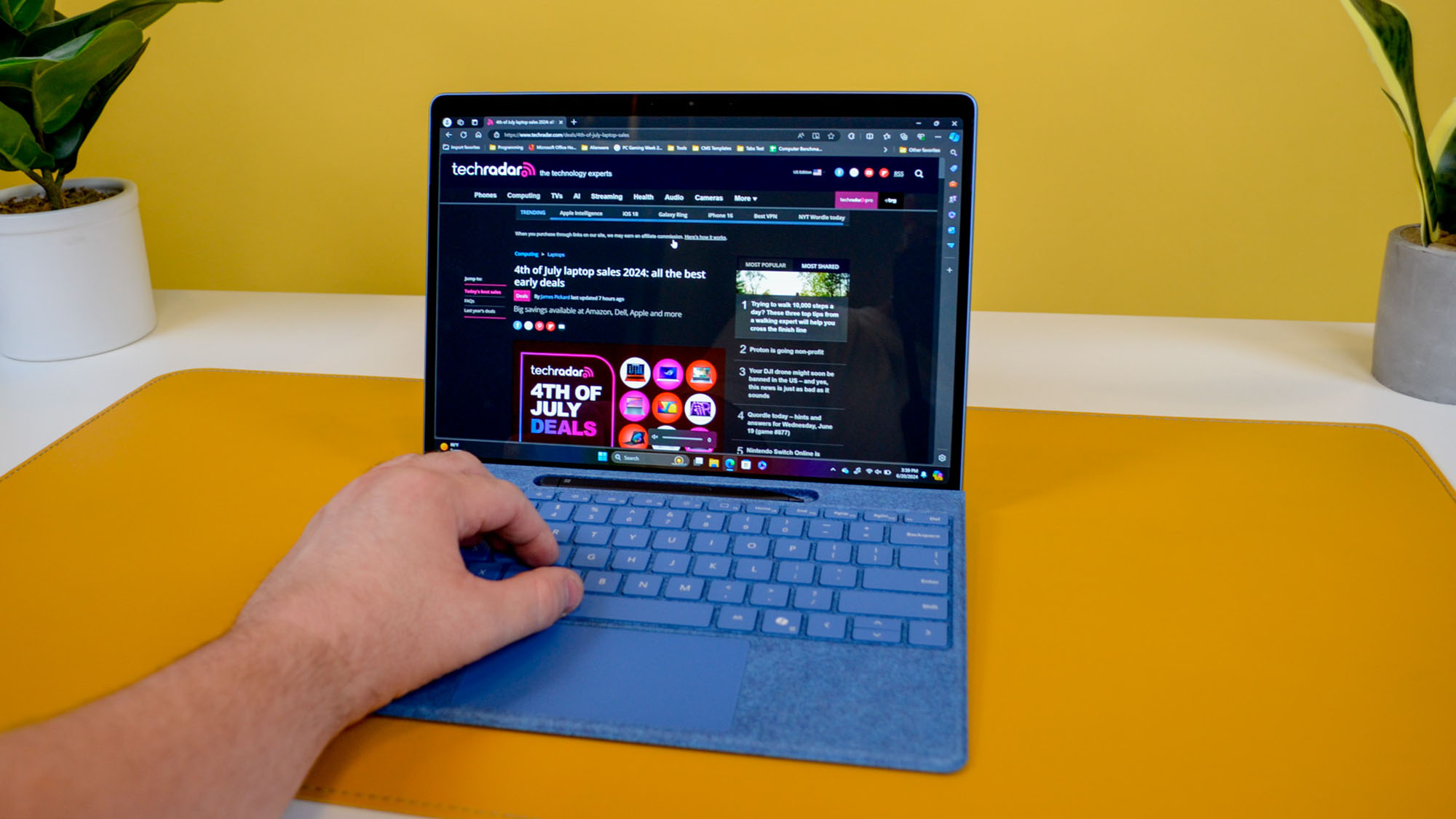Microsoft Copilot+ PCs set to ‘cause a crisis in Apple’s MacBook Pro sales’ as AI laptops are predicted to fly off the shelves in 2025
Analyst firm Omdia has some eye-opening forecasts

Microsoft’s Copilot+ PCs are set for booming sales if some fresh predictions from an analyst firm are correct – and these laptops could threaten Apple’s MacBooks in the future.
Obviously, these figures are just an estimation, involving a crystal ball as well as educated guesswork, and the fact that the boom in AI PC sales is already underway. In case you missed it, in Q2 of 2024, AI PCs – defined as any computer with an NPU (Neural Processing Unit to accelerate AI workloads), not a Copilot+ PC, which needs a more powerful NPU, we should clarify – hit sales of 8.8 million according to Canalys, another analyst outfit, doubling up on Q1.
As Wccftech reports, the new prediction from Omdia suggests Microsoft’s ARM-based Copilot+ PC sales will reach 800,000 units this year, and that will shoot up by over 500% to 5.2 million units in 2025. That’ll accelerate further to a total of 47.7 million units of these laptops in 2028, we’re told.
When considering all AI PCs, meaning ARM-based devices and Intel or AMD AI laptops, we’re looking at a rather staggering 34.2 million units shipped in 2025, which with the ARM-based machines on top, gives a total of 39.4 million units. By 2028, that total of ARM and Intel/AMD AI PCs will be 155.4 million units – if this educated guesswork pans out, of course.

Analysis: Smack-Book talk
The long and short of it is that Copilot+ PCs are expected to be very popular – to an eye-opening extent – going forward. Of course, after this year, most AI laptops of the Windows 11 variety are going to be Copilot+ PCs (as the majority of the chips with NPUs from Intel, AMD and Qualcomm will qualify for that designation, having a suitably powerful NPU).
Omdia gives us some reasons why we might see such an explosion in popularity, namely that AI will help people be creative, as AI can take on image or video creation tasks, giving anyone the ability to be a content creator. Whether that’s a good thing, or not, regarding a flood of AI-generated content and all the various worries therein, very much remains to be seen – but undeniably it should be a major selling point for Copilot+ PCs, we’d agree.
AI PCs are also expected to make a big impact in the field of education, in terms of helping not just students, but teachers in preparing materials for their pupils (all kinds of coursework media will be a snap to create, of course).
Get daily insight, inspiration and deals in your inbox
Sign up for breaking news, reviews, opinion, top tech deals, and more.
Omdia further points out that if Microsoft equips ARM-based Copilot+ PCs with a peppy discrete GPU, these devices could be a major problem for Apple’s MacBooks.
The analyst firm observes: “If Microsoft introduces an AI gaming or AI creator laptop with a 45-80 watt thermal design power (ARM) chip with a discrete graphics card (Discrete-GPU), and compresses the thickness of the laptop to close to the institutional thickness of Apple’s MacBook Pro (within 16 mm) through the thin and light function of OLED displays, it will cause a crisis in Apple’s MacBook Pro sales.”
AI on the rise
Microsoft going this route wouldn’t be a surprise. In fact, it was a stated goal when Microsoft first launched Copilot+ PCs, when the company told us: “We will bring new Copilot+ PC experiences at a later date. In the future we expect to see devices with this silicon [meaning Qualcomm Snapdragon ARM-based chips, plus Intel and AMD CPUs] paired with powerful graphics cards like Nvidia GeForce RTX and AMD Radeon, bringing Copilot+ PC experiences to reach even broader audiences like advanced gamers and creators.”
Well, fair enough – Microsoft is doubtless planning more powerhouse ARM-based Copilot+ PCs (and x86 models, meaning Intel and AMD silicon) down the line, and they will surely be a challenge to the MacBook Pro. However, Apple is not going to stand still with the MacBook Pro either, and in a few years’ time, we’ll have even thinner (OLED-toting) models of the Pro too – maybe with their own equally highly performant graphics solutions (we certainly wouldn’t bet against it).
This isn’t just about the hardware, though, and a lot depends on exactly how well Microsoft does with pushing the software side of the equation, and getting Windows on ARM working seamlessly with emulation – given that most apps aren’t natively coded for ARM (but x86 instead). Microsoft’s Prism emulation layer is the key to achieving this – and the firm will need to progress with software compatibility, and smooth running, as we’re not quite there yet with Prism.
It's still very early days for Prism, and Copilot+ PCs in general, though – and attention-grabbing predictions like Omdia’s are kind of par for the course. However, major growth in AI PCs isn’t something that can be ruled out, and indeed it feels like a distinct possibility – but a lot of that may also be wrapped up in what AI features Microsoft can grace Copilot+ PCs with. On that front, things aren’t off to a great start with the Recall debacle, of course, and lately, everything has gone very quiet with that particular feature – perhaps ominously so.
You might also like...
Darren is a freelancer writing news and features for TechRadar (and occasionally T3) across a broad range of computing topics including CPUs, GPUs, various other hardware, VPNs, antivirus and more. He has written about tech for the best part of three decades, and writes books in his spare time (his debut novel - 'I Know What You Did Last Supper' - was published by Hachette UK in 2013).